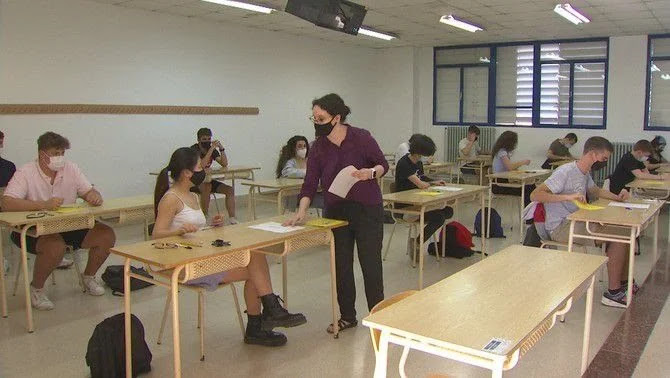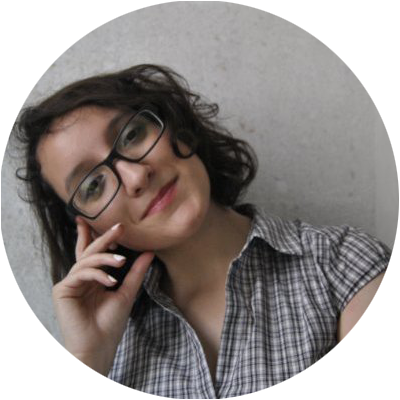This is the third time (and hopefully the last) that I find myself putting together a learning portfolio. The first time was on the occasion of International House’s Spanish as a Foreign Language (SFL) Teacher Training course; the second time was when I was doing University of Barcelona and Pompeu Fabra University’s joint master’s degree in Linguistics Applied to the Teaching of SFL, during which I created this very same blog; and now I am writing these lines as a first-year Translation and Language Sciences Ph. D. student at Pompeu Fabra University — more specifically, in the context of their Initial Training in University Teaching (FIDU) programme.
With a considerably transparent name, the FIDU programme aims to provide basic teacher training to entry-level university staff. Its activities include solving online questionnaires on relevant topics (such as teaching and assessment methods or course plan design), recording and receiving feedback on a class of one’s own, and creating an e-portfolio. In this post, which constitutes the introductory document of such collection of learning evidence, I will briefly discuss my teaching career and philosophy, as well as my future goals as a university lecturer, in a similar fashion to that of my previous portfolio’s starting point description.

My teaching career
Like that of every other nerd, my teaching career dates back to getting paid under the table as a teenager for well-intentioned but low-quality private lessons to classmates with difficulties. Officially, though, it started in 2017, when I took my first (baby) steps as a foreign language instructor in the private sector. Then, in December 2018, while doing my master’s degree, I was given the opportunity to teach a course at the university level. This was a truly remarkable experience, to the point that it helped me a great deal in choosing the academic path. From then on, I kept working as a freelancer and an Associate Professor at Pompeu Fabra University until I was awarded a Predoctoral Researcher contract to complete my Ph. D. studies. The exact details of said progression can be found in the mini CV below:
2017-2018
- (All levels) Trainee Spanish Teacher at International House Barcelona
- B2 Level English Teacher at Col·legi Shalom
- A1 and B1 Level Trainee Spanish Teacher at EF Education First
2018-2019
- Teaching Assistant — Oral Expression in Spanish Workshop: Advanced and Superior Levels (55035) for Erasmus students enrolled in Pompeu Fabra University’s Translation and Interpreting Programme ‘Languages and Cultures in Contemporary Spain’
2019-2020
- Freelance English Teacher for courses subsidised by the Public Occupation Services of Catalonia (SOC)
- Freelance Spanish Teacher at Baxter Business Services
- Associate Teacher — Spanish Language (25285) for first year Translation and Interpreting students at Pompeu Fabra University
- Associate Teacher — Oral Expression in Spanish Workshop: Advanced and Superior Levels (55035) for Erasmus students enrolled in Pompeu Fabra University’s Translation and Interpreting Programme ‘Languages and Cultures in Contemporary Spain’
- Associate Teacher — Oral Expression in Spanish Workshop: Intermediate Level (55032) for Erasmus students enrolled in Pompeu Fabra University’s Translation and Interpreting Programme ‘Languages and Cultures in Contemporary Spain’
- Associate Teacher — Spanish Language Seminar: Introduction to Teaching Spanish as a Foreign Language (20194) for third and fourth year Translation and Interpreting students at Pompeu Fabra University
2020-2021
- Predoctoral Researcher — Spanish Language (25285) for first year Translation and Interpreting students at Pompeu Fabra University
- Predoctoral Researcher — Empirical Methods in Language Studies (21516) for third year Applied Linguistics students at Pompeu Fabra University
2021-2022 (to be done)
- Predoctoral Researcher — Introduction to University and ICT Resources (25284) for first year Translation and Interpreting students at Pompeu Fabra University
- Predoctoral Researcher — Spanish Language: Superior Level 2 (55011) for Erasmus students enrolled in Pompeu Fabra University’s Translation and Interpreting Programme ‘Languages and Cultures in Contemporary Spain’
Having taught five different bachelor’s degree courses — some of them twice already — I would say I have some experience with both online and in-person university education and can, as a consequence, identify key aspects in my teaching practice that need to be improved. Judging from student evaluations and my own perceptions as a lecturer, the things I struggle with the most are giving feedback quickly and making highly theoretical lessons more digestible. Hence, my objectives for this academic year are palliating these issues by trying to optimise my grading time (i.e., offer less elaborate corrections and/or only on the most relevant mistakes) and introducing new instruction methods, such as problem-based learning. As for my strengths, I would highlight my creativity, my adaptability, my capacity for (constructive) self-criticism, my self-determination, and my genuine concern for the students, all of which I hope will remain intact over time.
My teaching philosophy
Throughout these years, my conceptualisation of the teaching-learning process has remained essentially the same, if only more comprehensive and refined on account of my actual experiences. It can still be defined by the trite William Butler Yeat’s quote that goes: “education is not the filling of a pail, but the lighting of a fire”. That is to say, students are not mere recipients of knowledge but agents able to model and reshape it, and thus my role as a teacher should be that of a guide and facilitator in their formative development. Consequently, rather than providing pupils with a list of facts, nothing is more valuable than tools and methods that they can adapt to their needs even when I am not with them anymore — more than specific content, I want to teach students how to learn and critically ponder on any subject.
In terms of concrete courses of action in the classroom, these principles materialise, on the theoretical side, in the regular use of a flipped-classroom format that promotes reflection and the formulation of more interesting doubts, as well as in-class open-ended questions aimed at breaking down concepts so as to build upon their understanding, and, on the practical side, in tasks that (i) require a nuanced application of such concepts and (ii) are contextualised in the real world (i.e., explicitly useful to students). The fundamental questions I always strive to answer, both to students and to myself when writing the syllabus, are “what do I need this for?”, “how will this be helpful in achieving my goals?”, and “is this really the best way to achieve them for the majority of the class?”.
This I had always intuitively understood as a daughter and as a student, but, of course, it is easier said than done and highly dependent on the group and the subject. Quite often the same plan works wonders with some pupils and goes terribly wrong with others. That is why another crucial aspect for me to feel comfortable teaching is getting continuous feedback from learners to see what is going well and what needs to be readjusted. However, this information needs to be obtained carefully and via some guidelines, as students are not experts and sometimes do not really know what they want or need. Lastly — and in the same vein — I would say fostering a good environment for both the pupils and the teacher is of the utmost importance. Everyone (and that includes me) should feel safe enough to make mistakes and to stand corrected, for that is the foundation of any significant learning.
Thank you for reading this far and see you in the next post!
comments powered by Disqus